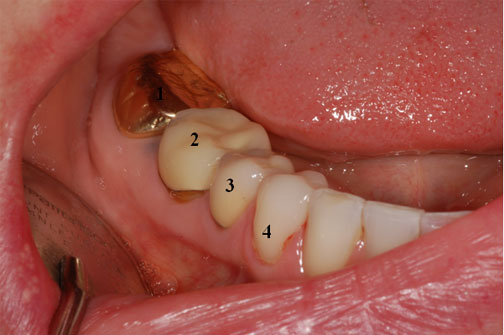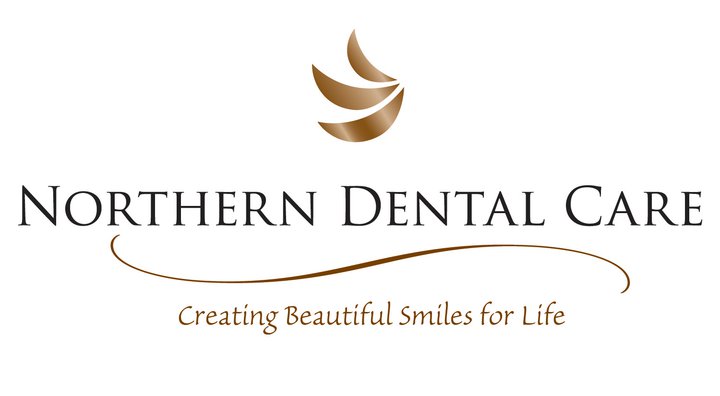A dental crown is recommended for a tooth when the structure of the tooth has broken down by either decay or fracture to the point that fixing the tooth with a filling material may be very diffcult and just to buy time.
A dental crown is recommended for a tooth when the structure of the tooth has broken down by either decay or fracture to the point that fixing the tooth with a filling material may be very diffcult and just to buy time. A crown is also recommended for teeth that have had root canal treatment, as these teeth become brittle due to the amount of tooth material that has to be removed, hence prone to fracture and subsequent loss of the tooth.
A crown bascially provides full coverage of a tooth to protect it from fracture and return it to full function.
The quality,composition and overall aesthetics of each indivdual crown may vary depending on many factors.
There are few types of materials that are commonly used including gold, porcelain fused to metal and full porcelain.
Each material has its indications - some are best for areas requiring more strength, and some are better for esthetics.
A full gold crown is a good choice for a back tooth. The material is biocompatible with gum tissue and gold generally kind to neighbouring teeth. The downside of this type of crown is the appearance - not many people like the yellow gold appearance.
A porcelain fused to metal crown is a hybrid between metal and porcelain crowns. The base of the crown is made of metal and then porcelain is baked on top of it. They are strong crowns and are a good choice for posterior teeth. The downside of this type of crown is when it i placed in an area where aesthetics are an issue (pretty much anywhere besides very back teeth) this material does not measure up - it is opaque and can usually be distinguished from the adjacent teeth at a conversational distance. There may also be a dark line that can be seen if the gums recede over time. Superior aesthetics cannot be typically achieved with this type of crown. As well porcelain may chip or break off from a crown revealing the dark metal underneath and a lasting repair to this type of material is difficult.
Full porcelain or ceramic crowns are fabricated in a fashion that no dark base metal is used, therefore aesthetics are superior to the other two types of crowns. These crowns are biocompatible and lighter in weight than the other two options. Currently there are many types of all porcelain/ceramic crowns made that can be made that can replace the standard porcelain fused to metal crowns. With the range of materials in the full porcelain category, crowns can be made for those who have a heavy bite, those who grind or clench thus to help prevent fracture and loss of the crown. These crowns are superior teeth in aesthetics as they exhibit a lustre, sheen and shine similar to natural teeth that the other types of crowns cannot match.
At Northern Dental Care we full porcelain crowns for all cosmetic and aesthetic cases, but can change the material to suit the unique situation of each patient.

#1 Gold Crown, #2,3 Porcelain Fused to Metal, #4 Full Ceramic/Porcelain
Another point to understand when having a crown or crowns made is to consider
where it is coming for. More recently some dental practices have started to use overseas labs in China as
one example for fabrication of their crowns. These crowns come with a reduced cost and though
quality may be okay the worry is what is "put into" these crowns when they are made since
regulations vary in other countries. Is it always important to ask what lab is being used to fabricate
the crowns and where are they coming from.
Last but not least is cost. Yes, crowns are definitely more expensive than the average 5 surface
filling but there is a reason for this. When a filling is done the dentist uses his skill and available materials
to artistically re-create the top of your tooth. Direct filling materials cannot be as strong, as good a fit, or esthetic as a lab fabricated crown. With a crown there is the cost for the preparation of the tooth for a crown, dental impressions and time but
also a lab fee to fabricate the crown for the tooth. In Ontario a whole tooth filling is approximately $300 whereas a crown for a tooth is somewhere around $1000-$1400 or possibly more depending on what treatment is needed to get the tooth ready for a crown. But just remember it is the quality of the work, quality of the product and where the product comes from the determines the cost for your new crown.
So when your dentist recommends a crown remember to ask these questions.
1. What type of crown is it and consider where it is going in the mouth for aesthetic/function purposes?
2. Who/what lab is making the crown and where is it coming from?
3. How many appointments will I need to have the crown made?
4. Can I see a model/photos of some of the crowns that you have placed?
Visit Northern Dental Care's website for more information about crowns at

 #1 Gold Crown, #2,3 Porcelain Fused to Metal, #4 Full Ceramic/Porcelain
#1 Gold Crown, #2,3 Porcelain Fused to Metal, #4 Full Ceramic/Porcelain